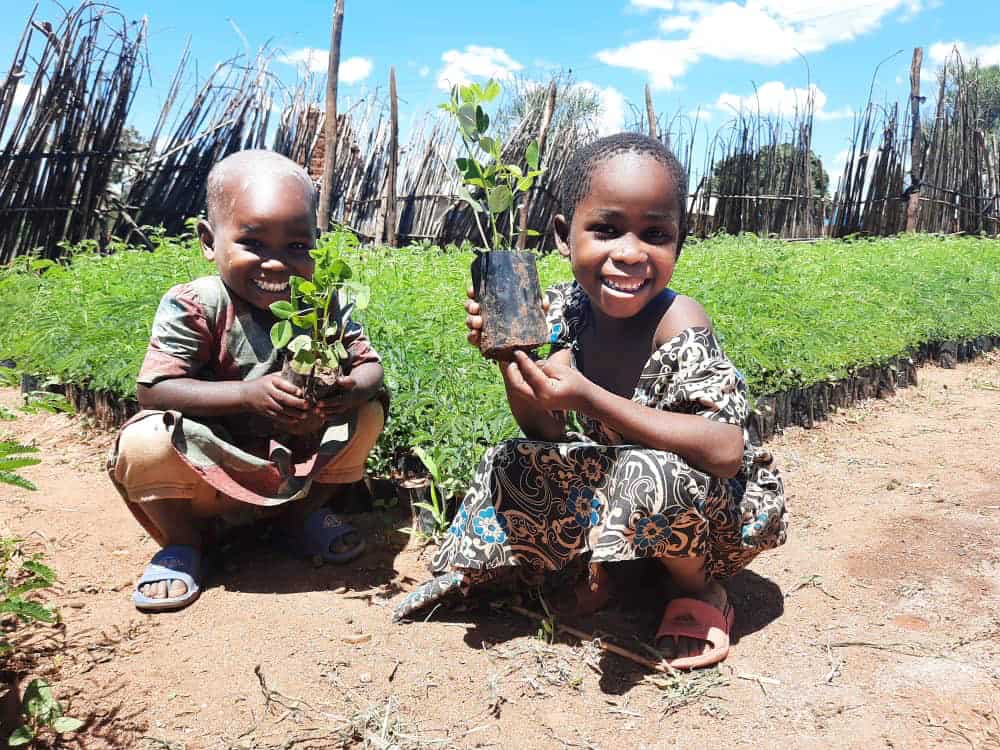“We are ecstatic to reach this milestone, it’s a memorable step in our mission to create a more sustainable food system while planting trees,” says Executive Director John Leary. “We could not have done this without the hardwork and determination of the farmers we serve, the talent and dedication of our global staff, and the unending generosity of our partners and supporters.”
The 200 million trees are planted in more than 50 countries and they’re all part of thoughtful agroforestry systems. More than 76 million of the trees are part of what TREES calls Forest Gardens, strategically planted and diverse farms consisting of thousands of trees and dozens of plant and food species.
“The important and unique thing about these 200 million trees is that they’re here to stay because they were planted with the climate and landowner in mind. We see many tree planting efforts fail because trees are planted en masse without proper planning or consideration for the land,” Leary says. “These trees will continue providing food or resources to these farmers for years to come and, at the same time, they’re restoring our environment by bringing back biodiversity, channeling water into the ground, improving soil fertility, and continually storing carbon.”
Today, Trees for the Future has programs and staff in Kenya, Senegal, Tanzania, and Uganda. They work in a number of other sub-Saharan Africa countries through collaborative partnerships. Staff train rural farmers living in poverty over a four-year period. In that time, that farmer learns how to protect and diversify their land without harmful and expensive chemical inputs. On average, each farmer plants between 2,500 and 4,000 trees per acre in their Forest Garden.. By the end of the program, the farming family is making a reliable income and eating regular nutritional meals.
“TREES, through its Forest Garden Approach has added new varieties of trees, vegetables, food and nutrition base to my family,” says Tanzanian farmer Salma Mussa. “This program is good and will keep sustaining my family forever.” (Read Salma’s story here.)
“The vegetables in my garden have really helped my family, they are feeding us and I am selling some of them at the market,” says Ugandan farmer Nangira Mary. “I thank Trees for the Future in Busia for the support they are giving us. The project has really helped us … as a community, it is our project.” (Read Nangira’s story here.)
TREES will celebrate its 32nd anniversary this year and is expanding into more countries in the coming months. Learn more about their work at trees.org.
###
Trees for the Future is a registered 501 (c)(3) nonprofit that is ending poverty and improving the environment by teaching farmers how to grow food more sustainably.
